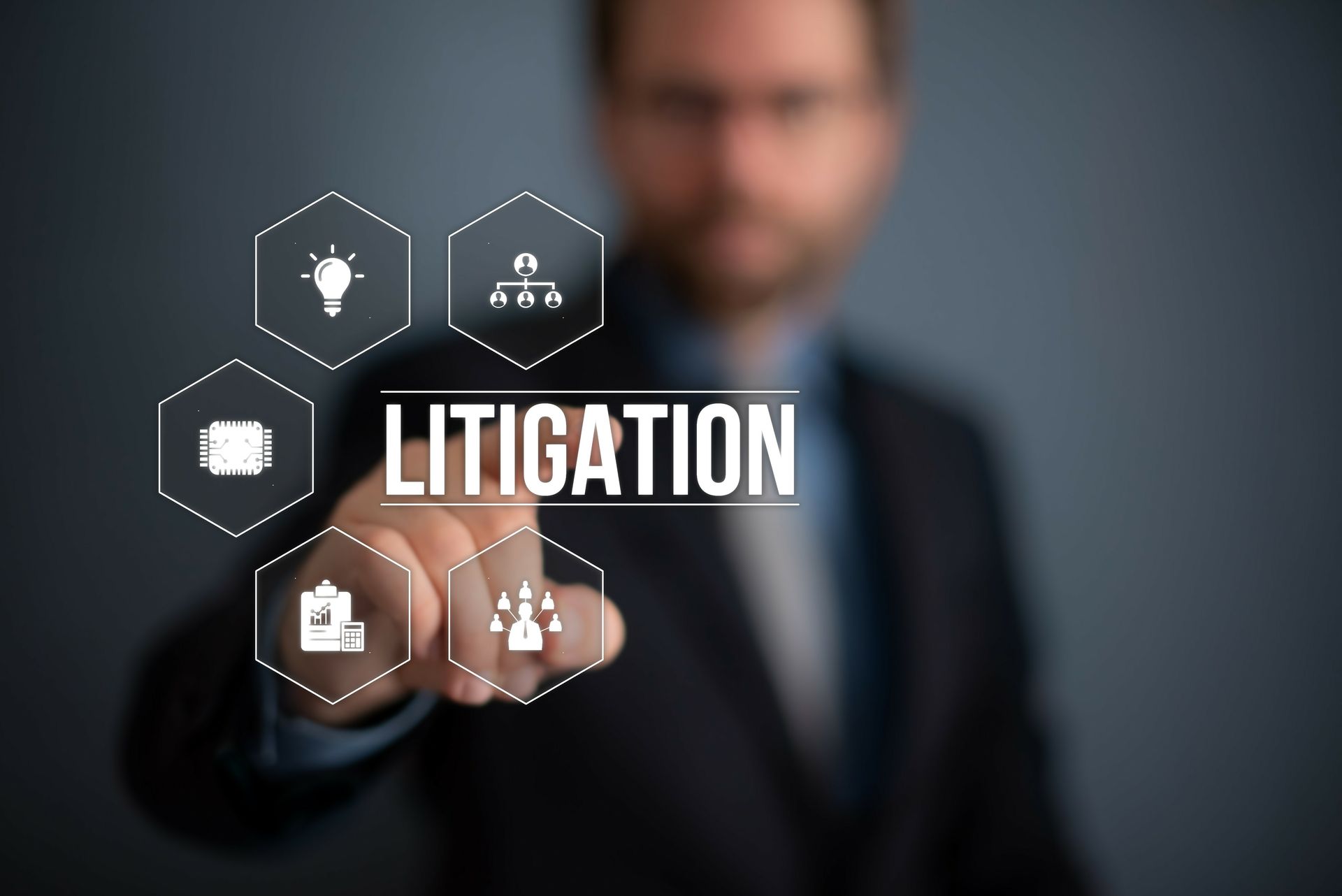Blog

Yes. An attorney is the general term for a lawyer who’s licensed and legally qualified to practice law, while litigators are a type of attorney that participates in litigation, or taking cases to court. Many attorneys focus their practice on boilerplate services (estate planning, real estate contract reviews, etc.) or only take cases they know can be easily negotiated without having to invest the time or effort needed to go through a trial.
Put simply, all litigators are attorneys, but not all attorneys are litigators.
What Does a Litigator Do?
There are two types of litigators: criminal litigators who participate in criminal defense or prosecuting criminal cases, and civil litigators who defend businesses and insurance companies or represent plaintiffs in civil cases, such as personal injury cases. Whether you should hire a litigator or another type of attorney is entirely dependent on the circumstances of your needs and whether you stand more to gain going to court or not.
If you want to establish an irrevocable trust, no, you likely don’t need a litigator. If you’ve been seriously hurt in a car accident or you’re a business owner facing a slip and fall claim, it may be in your best interest to consult with a litigator.
Litigators have all the same skills as attorneys who never go to court coupled with trial experience and the knowhow to build compelling cases. A litigator will support you in court and increase your chances of securing an ideal case outcome.
How an Atlanta Litigator Can Help With Your Legal Situation
Drafting Legal Documents
Litigation begins with a plea – a formal document filed to the court that outlines the plaintiff’s complaint and allegations and the defendant’s reply. A plea is crucial for demonstrating that a compromise can’t be reached and that litigation is the necessary next step toward resolution. A litigator can draft a plea or comprehensive plea reply as well as file any additional motions and briefs on your behalf.
Representing You in Trial
The validity of your claim or your business’s reputation is in your litigator’s hands. They’re responsible for presenting your evidence in a persuasive manner or defending your business with aggressive cross-examination of the other party’s witnesses.
Handling Appeals
If you don’t obtain the outcome you were hoping for and there are indications that legal or procedural errors were made, or there was potential misconduct, litigators can file an appeal to challenge the decision, continuing to fight for you and your interests.
When Should You Hire a Litigator?
Even if your case can potentially be settled in pre-trial negotiations, it’s still beneficial to have a litigator on your side. Attorneys who never go to trial may be viewed as pushovers who aren’t willing or able to play hardball. The threat of trial often brings opposing parties to the table or makes them more willing to compromise.
The skills in litigation and negotiation are transferable to some degree, and investigation, documentation and thorough legal knowledge are important in both circumstances.
Pros and Cons of Litigation
Pros
It’s common for both parties to leave the negotiating table feeling like they’ve lost because negotiation is founded on compromise. Litigation gives you the opportunity to not compromise by allowing an unbiased third party to decide the outcome.
Moreover, having an experienced litigator doesn’t cost a fortune. At the Law Office of Cameron Hawkins, we operate on contingency fees, which means we’re only paid if you win your case, whether that’s in negotiations or litigation. That means you don’t have to pay out of pocket to have a litigator on your side who will aggressively advocate for maximum compensation in court on your behalf.
Cons
Litigation can be a lengthy process, with cases sometimes taking months or even years to resolve. Not only can this delay your compensation, but this can also result in increased legal fees and other associated costs to accumulate and impact your eventual financial recovery or business’s resources[1] .
There’s also a risk that the plaintiff can win a large verdict in court that ends up being larger than a pre-trial settlement. During negotiations, parties have control over settlements, but you have no such guarantees when it comes to verdicts.
Go to Negotiations and Court Confidently with Our Experienced Atlanta Attorneys
Whether you’re a plaintiff or a business facing a liability claim, you’ll likely benefit from someone who’s experienced in both negotiation and litigation. At the Law Office of Cameron Hawkins, our team has a record of success representing plaintiffs and providing Atlanta businesses with vigorous tort defense. We are committed to advocating for our clients’ interests and do so zealously in negotiations and litigation.
Schedule a free one-on-one case consultation with one of our skilled attorneys by calling (678) 921-4225.











